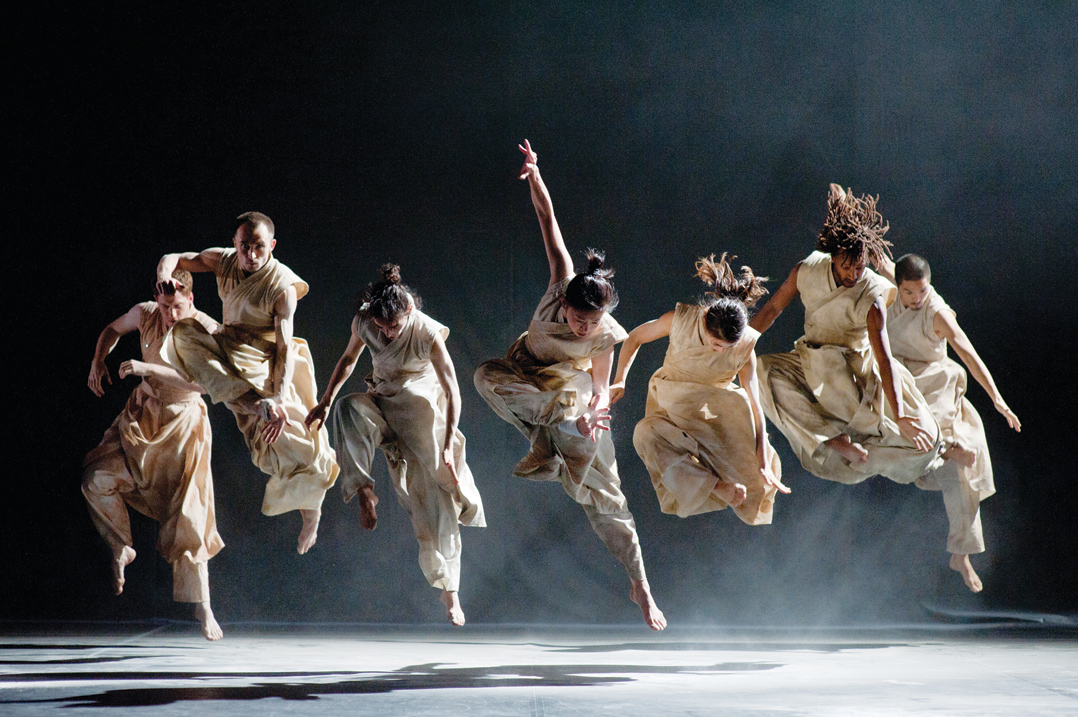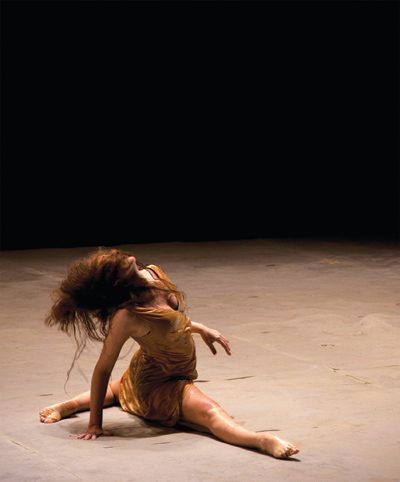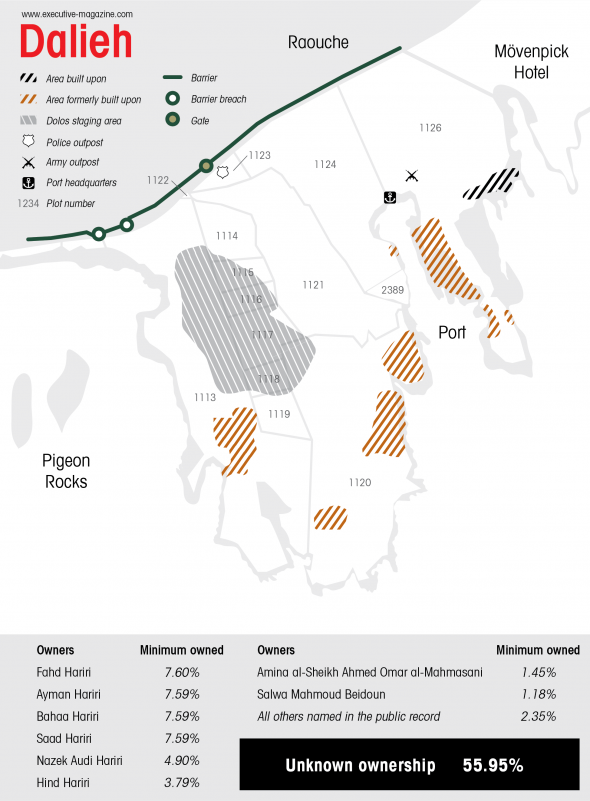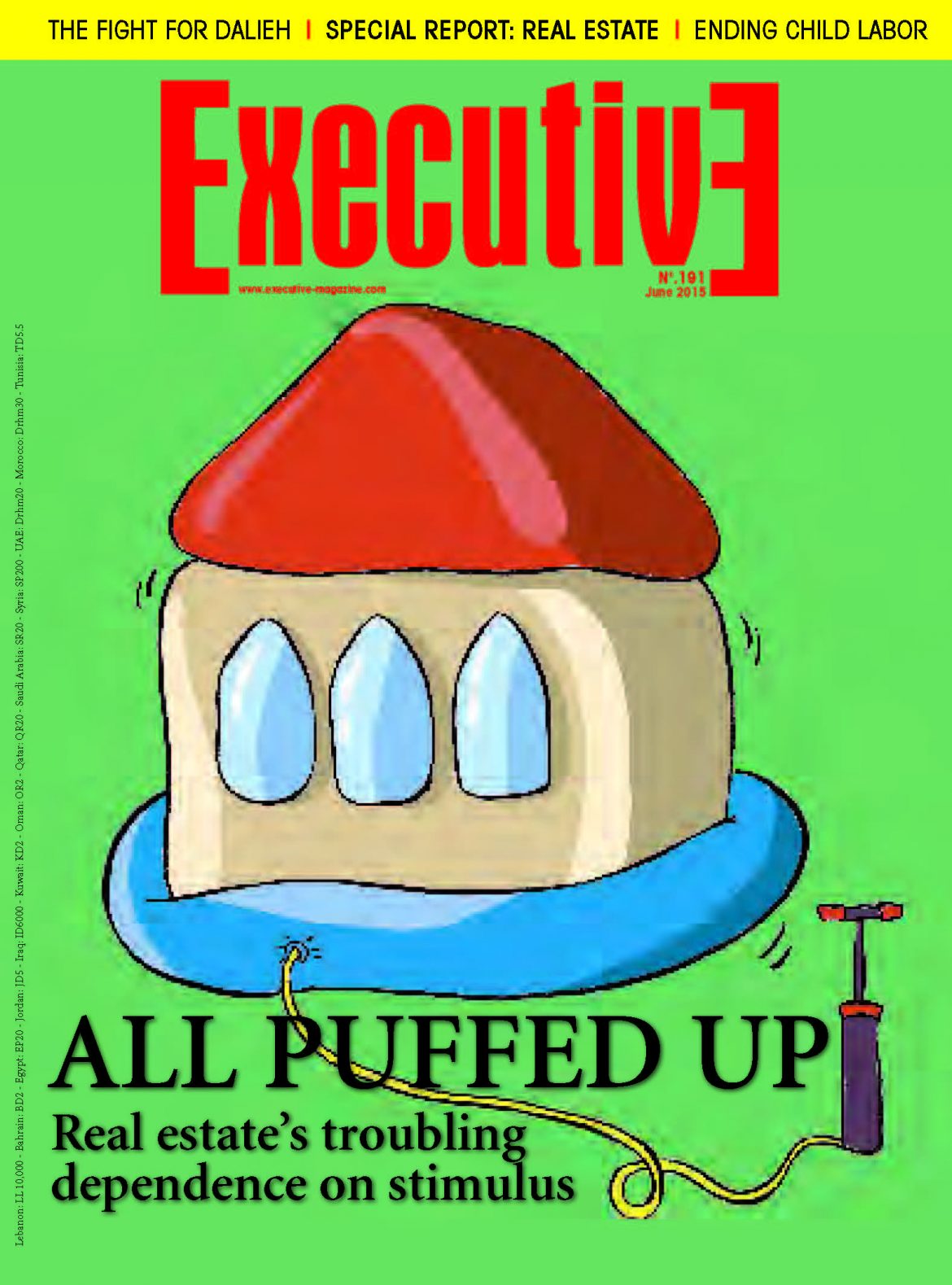Last summer, landowners erected a barrier separating Dalieh, along Beirut’s western coast, from the city and its inhabitants. It set off a tsunami of public criticism, protest and activist organizing — likely not the owners’ intent.
But just as those who erected the barrier were clearly misguided — this beast of barbed wire, chainlink fencing and concertina wire is more suited to a prison than a city — the ensuing tizzy of activism has also stepped outside the bounds of proper debate. In their zeal to protect one of the last vestiges of Beirut’s coast from development, some activists have fallen afoul of the truth, wittingly or not. The vast majority of Dalieh is not public property. Owners’ claims to the land and development rights are, as currently legislated, valid.
Most insidiously, a narrative has emerged that evil (read: rich) forces are oppressing the poor, defenseless fishers of Dalieh. Nothing could be further from the truth — a fact that became glaringly apparent when several of the fishers accepted huge settlements in return for leaving the land. At least one other, as our report on page 20 shows, is holding out for more — more cash, not more justice. Yet after police-backed bulldozers arrived in the early morning of May 2 to demolish fishers’ homes, this narrative of the oppressed fishers of Dalieh gained new currency (see “Tales from the sea“).
Make no mistake, this magazine stands with the preservation of Dalieh and the expansion of public spaces. Beirut is already suffocating from a lack of public space, and sanctifying this scenic gathering point for families, friends and lovers through formal government stewardship would be in the best interests of the city. What mystifies us is that despite the immense popular support for a public Dalieh — find a random person and ask what should be done with the land — some feel they must resort to distorted narratives to justify their position.
Such falsehoods are completely unnecessary, and not just because the public already agrees with the activists’ position. Last month’s brutish early morning demolition was hugely unpopular — and perhaps illegal. A spokesperson for the ISF ludicrously told Executive that this extraordinary operation was “normal.” When we requested the order for the bulldozing from the public prosecutor’s office, we were told we had no right to see it, if it even exists. We are left to conclude either that landowners ordered it, or an overzealous public servant did it in hopes of ingratiating themselves with the landowners. Such opaqueness — and incompetence — only calcifies the deep distrust the public has in Dalieh’s current owners.
Listen to the masses
At this point, it is clear that both sides are playing a little dirty. But activists shouldn’t — espousing falsehoods only undermines their quite reasonable position. Activists must first realize that in the court of public opinion, they have the landowners’ backs up against the wall. Then, offer a square deal: owners invested money in their lands, they should get something in return. That is, activists must come up with a deal that allows landowners to do the socially conscionable thing. The specifics of such an agreement would likely need to be worked out between owners, the government and activists representing the public.
For their part, owners should realize the perilous position they’re in. The Hariris in particular should recognize that their name brand would be irrevocably damaged if they fail the public on yet another important public space — they are already widely blamed for Solidere’s disastrous ‘redevelopment’ of downtown. Instead, they should harken back to a better example of their family’s public service: Rafik Hariri’s laudable gift that helped rennovate the Grand Serail in 1998. If the Hariris commit to giving the land back to the public, other owners will have no choice but follow. If government stewardship is untenable, a trust could be formed to rehabilitate and maintain the area.
But if owners are not yet ready to make such a sweeping commitment, they could at least begin to show good faith. To begin with, tear down the barrier.

























